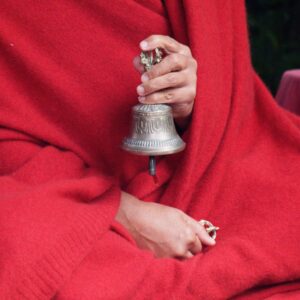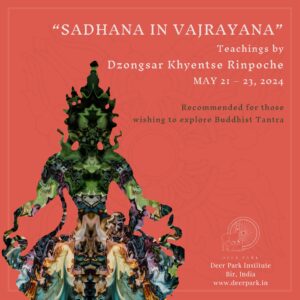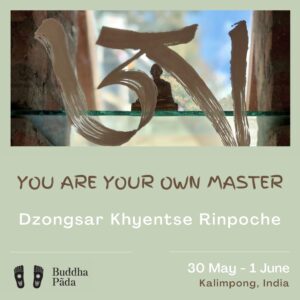On a recent full moon night of September 29, a cluster of joyful youths took to the dance floor of a Thimphu pub bobbing spiritedly to an electrifying, albeit quirky dance number. As it happened, it was the chant of the 7-line prayer to Guru Rinpoche, one of the holiest prayers in Vajrayana Buddhism, wrapped in electronic dance music or EDM as it is known. By the next day, a video of it was posted on Facebook. The backlash was swift and heated.
Outraged moralists took to social media to express their shock and disdain and demanded that authorities discipline the revellers and pub owners including the DJ who played the provocative number. They called the episode an example of complete moral degradation. At social gatherings, second-guessers and tongue-cluckers added fuel to the fire.
That we Bhutanese have an appetite for moral outrage is a given, but the avalanche of such indignant and sanctimonious reactions does make one wonder how we would react to the divine madman Lam Drukpa Kunley if he were alive today. By all historical accounts, he wore rags for dresses, sported long dreadlocks for hair, stank to high heavens, and there was no polite way to describe his words or actions.
Music and dance were always a part of Buddhism. They functioned as an act of offering to the Buddha. In the Lotus Sutra, one of the oldest texts of the words of the Buddha, a bodhisattva known as ‘Wonderful Voice’ makes offerings of various kinds of music to the Buddha. The great Milarepa taught his students about impermanence, meditation and enlightenment through songs. In ancient India, dances were composed and performed as offerings to the Buddha. Music (vocal, instrumental, or both) was also used as a skillful means to memorize sacred texts and a form of meditation.
It is also said that sentient beings can make or strengthen their karmic connections to the Dharma if those beings hear even one word of the Buddha no matter where they happen to be, no matter what state they happen to be in, and no matter through which medium or form.
Many accounts today also suggest that the reason modern Bhutanese youths have become disillusioned or are drifting away from the Dharma is not that they’ve lost their belief in the Buddha so much as that they’ve lost confidence in the archaic and rigid ways of doing things for the Dharma. So one might argue that a group of youths joyfully singing and dancing to a Guru Rinpoche chant on a full moon night may not be such an eyesore, be that as it may in a pub.
What many did not know was that the author of the 7-line prayer chant in the said electronic dance music number was Dzongsar Jamyang Khyentse Norbu Rinpoche.
So recently, as autumn rolled in and leaves took on the orange glow of the setting sun, I wrote to Rinpoche about the brouhaha and asked him what he made of the situation. He was more amused than shocked by it. I also learned that the chant in question came to be not by design or intention but by a blessed stroke of serendipity. Since then Rinpoche has also posted the video on his official Facebook page where it has garnered interesting debates.
In this Q&A, Rinpoche reflects on the state of Buddhism and why reading a prayer to a cow or a donkey will help him connect with Dharma in his next life.
So Rinpoche, as I mentioned, the Guru Rinpoche’s 7-line prayer chant that had been turned into electronic dance music and which was recently played and danced to at a Thimphu pub has created quite a stir in the Bhutanese Facebook community and beyond. Some have called for the pub and the DJ who played the number to be punished. I understand you sang the song. Were you surprised by the strong reaction back home?
First of all, I want to make something clear. I actually did not make that song. It was made by one of my friends who does this kind of music. It was a few years ago, he requested to chant some of these prayers and we did it just for fun, and the end result is this. You know, there are people who don’t like their own voice. I am one of them.
I did not know about the strong reaction until you mentioned. I’m not that surprised. This is something I’m used to. I’m used to observing that, not just in Bhutan, but from Korea to Mongolia, from Japan to Sri Lanka, in all the traditional Buddhist societies, we have this kind of outlook. Bhutan is not an exception — probably Bhutan is more intense. I guess this is what happens when culture and the Dharma get all intertwined. At this age, I’m kind of giving it up. I keep on hearing the Bhutanese complaining about how our youngsters are losing interest in Dharma. Elsewhere, in places like Taiwan, we hear the same complaint. We also hear the older Buddhist generation from Singapore talking about how they are losing their younger generations to Christians.
In order to attempt to address that, if you try to do something different, even a minor thing, the Buddhist self-appointed police will trash you. Not just the police. In fact, the majority of traditional Buddhists will condemn you. So, where do we go from there? If these people who seem to claim a sort of concern for Buddhism really care so much about Buddhadharma —it is already too late, but you know— it is very, very high time that they really thought it through.
Some of these Bhutanese may think that Bhutan is a kind of place where Buddhism is being protected and guarded. They must have smoked something. At best, there is a sort of culturally induced Buddhism just hanging there. Beyond that, the status of Buddhism in Bhutan, at best, may sort of hang there for another twenty years. And the projection, from my point of view, is very bleak. When the next generation of Bhutanese, especially the next generation of Bhutanese born in places like Perth and Jackson Heights arrives, Bhutanese culture will have become, at best, just a recreational event. And at that time, the Bhutanese-culturally-induced-Buddhism will be even less alive. It will be basically gone. At this point, we don’t know whether this next generation will even become Bhutanese, whether they will even call themselves Bhutanese.
After the video of the youths chanting and dancing enthusiastically to your 7-line prayer electronic dance music surfaced on Facebook, some shocked moralists declared it as the start of the degeneration of Buddhism. What do you think of it?
I don’t want to be defensive here. I cannot really say that something like this really degenerates Buddhadharma. Besides, I also think it is too presumptuous to say that this will help the Dharma.
What degenerated Buddhism? We can argue endlessly. In fact, many of the Buddhist traditions that we treasure and love and zealously guard so much, especially in Bhutan, are the very cause of the degeneration of Buddhadharma, if you analyse. But this is how human beings are. Human beings make judgments. Theoretically speaking, I would say that the degeneration of Buddhism begins when there is no interest in the Buddhist view, such as impermanence, dukkha, selflessness, bodhichitta.
Also, from another angle, one could argue that sitting on a high throne, wearing impressive robes and hats, and observing in an almost-military way a precision of etiquette, may have served its purpose to inspire and strengthen the enthusiasm or interest towards the Dharma at one time and in a certain place. But I doubt it will still do the job in the twenty-first century.
Another thing I would like to mention is that in Buddhism in general, and especially in tantric Buddhism, which is what is prevailing in places like Bhutan, we have concepts such as tongdrol and tendrel. So there is the tradition of building giant statues with the aspiration that whoever sees them, including those who don’t even have a clue about what they are, such as flies, will plant some sort of karmic link by simply having a connection with these statues. We have, as well, a tradition of reading dharanis to the ears of cows and donkeys with the hope that they will establish a connection with the Dharma. Therefore, in this context, I personally don’t see that something grave has happened.
Contributed by Kencho Wangdi (Bonz)
The writer is the former editor of Kuensel






